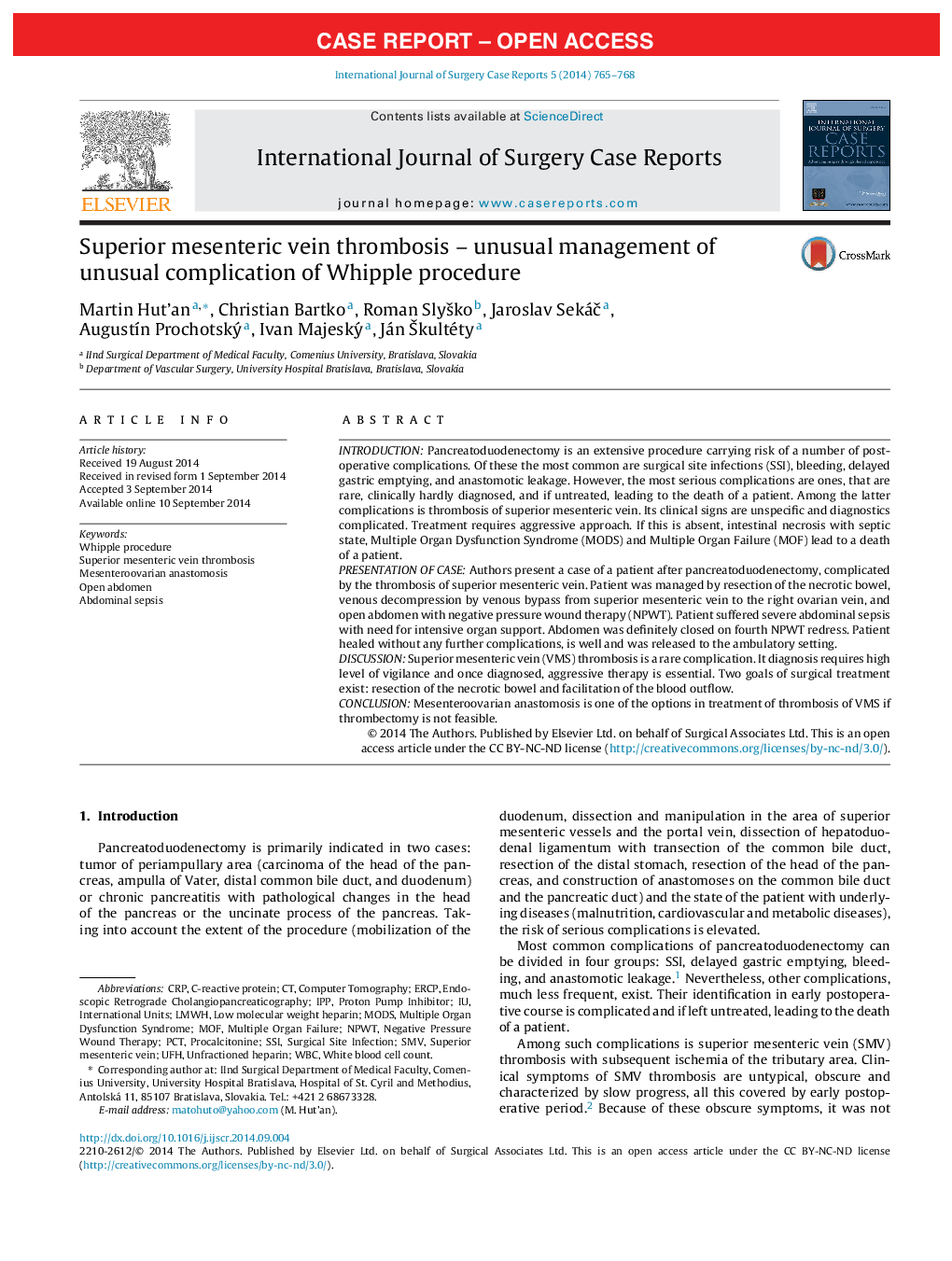| Article ID | Journal | Published Year | Pages | File Type |
|---|---|---|---|---|
| 4289246 | International Journal of Surgery Case Reports | 2014 | 4 Pages |
•Whipple procedure (pancreatoduodenectomy) is an extensive procedure carrying risk of a number of postoperative complications.•Thrombosis of superior mesenteric vein is a complication that requires aggressive therapeutical approach.•Mesenteroovarian anastomosis is one of the options if thrombectomy is not feasible.
INTRODUCTIONPancreatoduodenectomy is an extensive procedure carrying risk of a number of postoperative complications. Of these the most common are surgical site infections (SSI), bleeding, delayed gastric emptying, and anastomotic leakage. However, the most serious complications are ones, that are rare, clinically hardly diagnosed, and if untreated, leading to the death of a patient. Among the latter complications is thrombosis of superior mesenteric vein. Its clinical signs are unspecific and diagnostics complicated. Treatment requires aggressive approach. If this is absent, intestinal necrosis with septic state, Multiple Organ Dysfunction Syndrome (MODS) and Multiple Organ Failure (MOF) lead to a death of a patient.PRESENTATION OF CASEAuthors present a case of a patient after pancreatoduodenectomy, complicated by the thrombosis of superior mesenteric vein. Patient was managed by resection of the necrotic bowel, venous decompression by venous bypass from superior mesenteric vein to the right ovarian vein, and open abdomen with negative pressure wound therapy (NPWT). Patient suffered severe abdominal sepsis with need for intensive organ support. Abdomen was definitely closed on fourth NPWT redress. Patient healed without any further complications, is well and was released to the ambulatory setting.DISCUSSIONSuperior mesenteric vein (VMS) thrombosis is a rare complication. It diagnosis requires high level of vigilance and once diagnosed, aggressive therapy is essential. Two goals of surgical treatment exist: resection of the necrotic bowel and facilitation of the blood outflow.CONCLUSIONMesenteroovarian anastomosis is one of the options in treatment of thrombosis of VMS if thrombectomy is not feasible.
